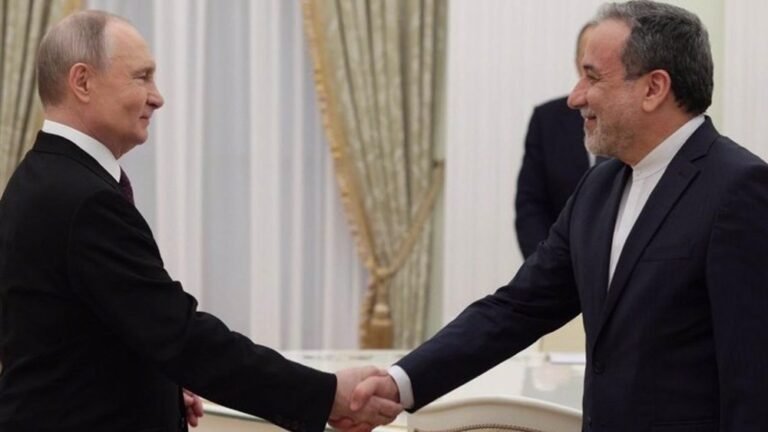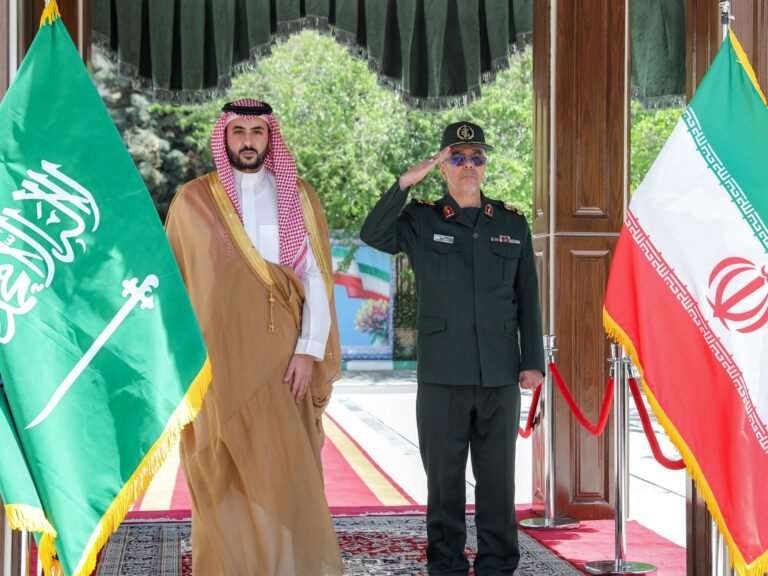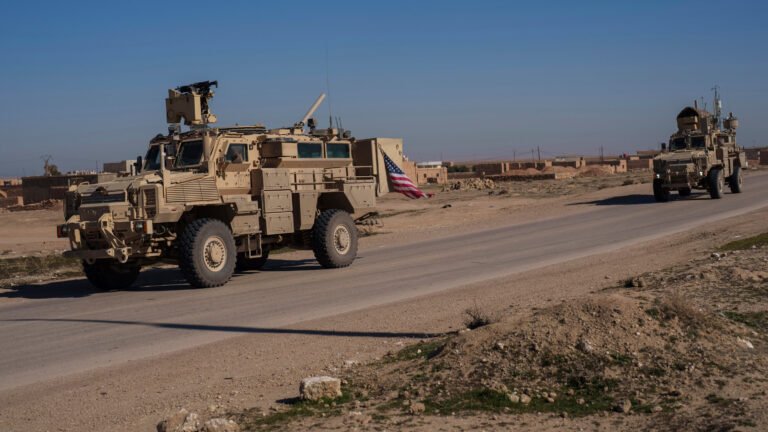Earlier this week, Jordanian authorities announced the arrest of a sixteen-member cell with ties to Hamas and its parent organization, the Muslim Brotherhood, accusing them of attempting to manufacture rockets following training they received from Hamas members in Lebanon.
Cell members were accused of undermining national security, inciting chaos, and causing physical sabotage to the kingdom. The arrest was accompanied by festive press releases and a promotional video detailing how local intelligence had been following the cell since 2021, especially its three main members, who were found to have been storing dozens of kilograms of highly explosive materials, working to manufacture rocket fuselages. Authorities found enough parts to build approximately 300 rockets with a range of 3 to 5 kilometers. Despite the local Muslim Brotherhood branch’s quick disavowal of these operatives, their arrest and open accusation of the Muslim Brotherhood on camera sparked a heated debate over the role and ideology of the Muslim Brotherhood in the Hashemite Kingdom. In order to understand these events further, it is necessary to scrutinize the relationship between the Muslim Brotherhood, its Palestinian offshoot Hamas, and Jordan’s Hashemite monarchy, a relationship that has been complex and evolving, characterized by periods of accommodation, tension, and outright confrontation.A catalyst for Palestinian identity
Ideologically, the Islamist stance towards non-Islamist regimes, especially those flaunting monarchic titles, has been stark dogmatic opposition, as these were seen as usurping the traditional leadership of the Islamic world, meant to be led by a religious Caliph – not by a secular king or ruler.
These, alongside the Brotherhood’s open aspirations to establish an Islamist state with Sharia law at its core, have put Islamist organizations at odds with many regimes across the Arab and Muslim world. However, the Brotherhood in Jordan has shown a pragmatic and flexible stance, which allowed its members to gain more influence, especially in comparison to a more confrontational approach against the monarchy, which is seen as a national symbol of pride and unity.The Muslim Brotherhood established its presence in Jordan in 1945, initially with tacit approval from the monarchy.
Unlike its more confrontational stance in other Arab countries such as Egypt or the United Arab Emirates, both of which outlawed the movement altogether, the Jordanian Brotherhood and monarchy adopted a relatively moderate approach towards each other, as the Brotherhood decided to focus on social services, education, and charity work, in line with the Brotherhood’s Da’wah (“soft” call to Islam) approach. This pragmatic positioning allowed the
Jordanian Brotherhood to survive and even thrive under the Hashemite monarchy while other regional branches faced severe repression. Over the years, the Muslim Brotherhood has played a significant role as a catalyst for Palestinian identity in the Hashemite kingdom. Palestinians constitute a majority of Jordan’s population, with some estimates placing them at over 65% of the kingdom’s inhabitants; and Palestinian society is traditionally seen as being in control of Jordan’s business and private sectors. However, since the deadly events of Black September, in which thousands of Palestinians found their death at the hands of King Hussein’s forces following an armed insurgency, Palestinians were unable and perhaps also unwilling to exercise any form of self-determination in the kingdom. In this context, the Brotherhood became a primary vehicle for expressing Palestinian identities while operating within Jordan’s political framework. This dual identity – supporting both Islamist values and Palestinian nationalism – gave the Brotherhood significant appeal among Palestinians in Jordan who felt marginalized by the East Bank-dominated political and military establishments. The organization provided not just a religious framework but also a platform for preserving Palestinian cultural identity and, more subtly, political aspirations. In 1992, the Jordanian Muslim Brotherhood established a political party, the Islamic Action Front (IAF). Although the party was initially reluctant to participate in local elections, having boycotted them for many years, the September elections saw a triumph as the IAF became the largest single party in parliament, securing 31 of the 138 available seats.The Brotherhood’s electoral strategy reflects its dual approach: participating in the system when advantageous while maintaining criticism of its fundamental structure. This pragmatic engagement allows it to gain political influence while preserving its identity as an opposition movement.
More recently, about a decade ago, the Muslim Brotherhood in Jordan split into two opposing groups claiming the same name, one officially registered with closer ties to the regime and the other operating with no official recognition, showing a more confrontational line. This rift is especially noticeable vis-a-vis issues such as domestic reform and the stance towards the regime and the Brotherhood in Egypt, as well as ideological differences regarding strategies and ways to advance the Brotherhood’s goals. The formal society maintains official legitimacy by accepting certain red lines set by the monarchy, while the more radical elements push for more fundamental changes in Jordan’s domestic and foreign policies.The Israel factor
The 1994 Israel-Jordan peace treaty marked a watershed moment, as the Brotherhood vehemently opposed normalization with Israel, organizing protests and mobilizing public opposition. This stance resonated with many Jordanians, particularly those of Palestinian origin, who viewed the treaty as a “betrayal of the Palestinian cause.”
The monarchy, prioritizing peace for strategic considerations, proceeded with the treaty despite this opposition. This created lasting tension between the Brotherhood and the regime, with the organization becoming the primary domestic opponent of Jordan’s peace policy. Despite this, the Brotherhood has been careful to frame its opposition to peace with Israel as criticism of the government, elected by the monarchy, rather than criticism of the monarchy directly, a stance that allowed it once again to gain legitimacy rather than opposition. Another dramatic episode in these relations occurred in September 1997 when Israeli Mossad agents reportedly attempted to assassinate Hamas chief Khaled Mashal in Amman by poisoning him, an operation which was seen as a violation of the recent peace treaty and created a diplomatic crisis. Notably, Hamas describes itself as the Palestinian branch of the Muslim Brotherhood and holds strong organizational ties to its kin in the Hashemite Kingdom. Immediately after these events unfolded, King Hussein responded forcefully, demanding that Israel provide the antidote to Meshal’s poisoning, saving his life. This incident temporarily improved relations between the monarchy on the one hand and Hamas and the Muslim Brotherhood on the other. In recent years, the Brotherhood has been a leading voice in anti-Israel activities and protests, whether on economic grounds, such as water and gas agreements with Israel, or pro-Hamas demonstrations, such as in the context of the current war. However, as of lately, these activities have been experiencing a process of delegitimization from formal Jordanian authorities. For instance, the pro-Hamas protests, which made their way to the border with Israel during the early stages of the current war, were accused of being organized by Iranian actors in an attempt to sow chaos inside the kingdom. And now, the arrest of the current terrorist cell – along with what appears to be a dictated, on-camera accusation accusing the Brotherhood of setting up the cell which threatened national security — has placed the group under public scrutiny, framing it within a confrontational stance towards the monarchy, the country, national security and cohesiveness. Jordan’s stance toward the Brotherhood can be seen as a mirror image of the Brotherhood’s stance toward the monarchy. Both recognize the other’s deep social roots and legitimacy among significant segments of the population, despite also viewing it as a sort of nuisance and an obstacle to achieving its political end-goals – and both will probably continue to dance their delicate tango, using the other’s legitimacy to its own benefit, and subtly threatening to undermine it if it crosses too many red lines. The Brotherhood’s ability to mobilize popular sentiment on issues such as Gaza, political reform, and economic concerns makes it both a potential partner and rival for the monarchy. This delicate balance continues to define one of the most important relationships in Jordanian politics, with significant implications for regional stability and the rule of Hamas.








